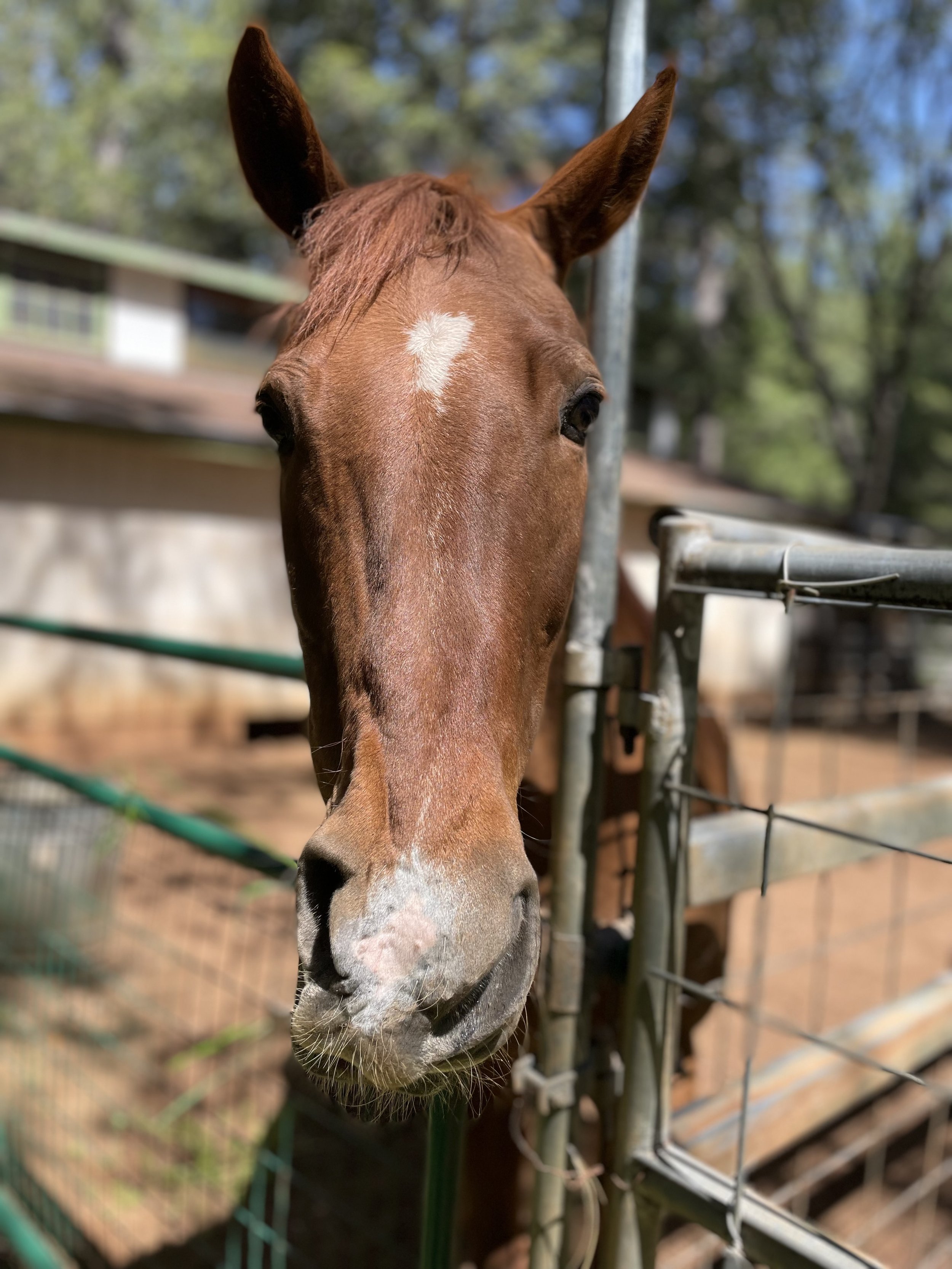Horses at Iona House
By Elizabeth Jones
Iona House is best understood as a “house” of formation. I believe horses have a key role to play in this mission.
While obtaining my masters in counseling psychology, I learned that an incredible amount of critical formation happens in the first few years of our lives. Before we even have the capacity to think in words or communicate in words, we are forming our emotional sense of self. We are learning the attachment patterns which will guide the course of our relationships through out our lives. We are forming intuitions about our place in the world and establishing our emotional baseline sense of safety. All this is already beginning, and in some cases, rather firmly established, before we even have the capacity to verbally articulate what is going on inside of us.
Horses have a unique way of connecting with us in these non-verbal, embodied places. Horses are incredibly sensitive to what is going on inside of us – what is really going on inside of us. Even if we are blind to our own carefully guarded anxiety, grief, or anger, horses are herd animals whose survival is predicated on knowing the non-verbal cues of their herd. Their bodies pick up on the tensions within our own bodies. They mirror to us what we are feeling, even when we do not know what we are feeling ourselves. In fact, because horses are so big, they actually amplify to us what we are feeling. When we learn to address the feelings being displayed in the horse, it can in turn address the feelings that we are feeling in ourselves.
I experienced this recently while I was spending time on the parcel adjacent to Iona House a couple of months ago (this is the parcel we hope to purchase). There is a barn on this parcel with a 21-year-old mare who is the last of her herd. She was raised on this land with her mother, but now all the other animal companions (horses, donkeys, llamas and goats) are gone. She is well cared for in every way physically, but her relational world has been largely emptied.
The first time I went to visit her (after the horse’s owner had given me permission), I was a bit of jumbled mess. I didn’t quite know what to do with myself in the wake of losing all that had formerly occupied our lives in SF. I was irritable and blamed it on an exhausting move with two toddlers, but I didn’t necessarily have a conduit to access what was happening more deeply within me. When I went to visit the horse, it took a while for the horse to even let me halter her, but eventually she allowed me. It took a while for the horse to even let me pet her (she isn’t used to much human handling), but eventually she let me touch her. Importantly, what was happening between us was an intricate, embodied building of trust. In the midst of an uncomplicated, bodily felt trust, I found myself crying to this horse who could understand no reasonable words. But in the midst of our interaction, I felt safe to acknowledge my grief (having moved away from our community in SF). Somewhat mysteriously, I simultaneously experienced a feeling of understanding, since this horse also knows what it’s like to feel alone. I have experienced and witnessed unique connections like this many times from when I have volunteered in therapeutic riding, worked as a horse expert in equine assisted psychotherapy, and from when I previously owned my own horse.
As a house of formation, Iona House intentionally cultivates places of non-verbal, embodied formation, and part of this will be through care of our animals at Iona House, including the horses we hope to have one day. I look forward to the day when we can utilize horses at Iona House as an intentional way to access some of the non-verbal, embodied aspects of our souls (that are sometimes wounded, guarded or numbed) in order to bring ourselves more fully into the presence of Christ as embodied, integrated creatures who are more fully worshipping and trusting their Creator.






